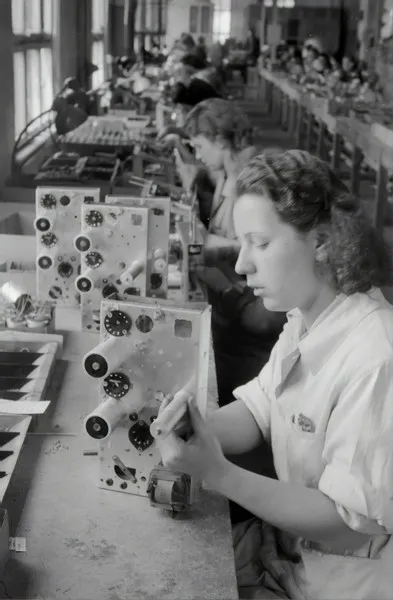The concept of “forces of production” is central to Marxist theory and has been a foundational element in the sociological study of economies and societies. This concept refers to the technical, physical, and human components necessary for producing goods and services in a society. Understanding the forces of production provides insights into how societies are organized, how they evolve, and the nature of social relations within them. This exploration will delve into the definition and components of the forces of production, their role in social change, and their implications in contemporary societies.
Definition and Components
In Marxist theory, the forces of production include all the means through which labor is applied to generate material goods. This encompasses not just physical tools and machinery, but also the human labor power and knowledge applied in the production process. The forces of production are a part of the broader socio-economic base of society, which interacts with the superstructure (institutions, cultures, and political structures) to shape the historical trajectory of civilizations.
- Tools and Technology: This includes all physical instruments (machinery, factories, infrastructure) used in the production of goods. The development of tools and technology is often seen as the primary driver of changes in the forces of production.
- Human Labor Power: The capabilities and knowledge of workers, which are applied in the production process. This includes physical labor, technical expertise, and organizational skills.
- Scientific Knowledge: The accumulation of scientific knowledge and techniques that enhance production capabilities and efficiency.
Historical Role of Forces of Production
The forces of production are a dynamic component of society that evolves and influences social structures over time. Marxist theory posits that changes in the forces of production can lead to transformations in the entire social structure, particularly through their interaction with the relations of production (the social relationships that people enter into as they acquire and use the means of production).
The Development of Societal Forms
Marx identified several stages of societal development, such as primitive communism, slavery, feudalism, capitalism, and socialism, each characterized by specific forces of production and corresponding relations of production. For example, the feudal system was based on agrarian forces of production with land as a key asset, whereas capitalism is characterized by industrial forces of production and capital accumulation.
- Industrial Revolution: A key historical example where forces of production played a decisive role is the Industrial Revolution. The introduction of new manufacturing processes and machinery dramatically changed production capabilities, which in turn transformed economic systems, class structures, and urbanization patterns.
Conflicts and Class Struggles
Changes in the forces of production often lead to tensions and conflicts as existing social relations become inadequate or obstructive. For instance, the mechanization of production during the Industrial Revolution displaced many workers, leading to widespread social unrest and the eventual emergence of new labor movements and political demands.
Forces of Production and Social Change
The forces of production are not just passive elements of economic systems; they actively drive social change. As these forces evolve, they necessitate adjustments in social and economic relations, often leading to significant societal transformations.
Technological Determinism
Some interpretations of Marx suggest a form of technological determinism, where changes in technology and productive capabilities are seen as the primary determinants of social conditions and historical change. However, this view is often critiqued for underestimating the role of human agency and cultural factors in shaping societal development.
Interaction with Other Societal Aspects
The forces of production interact with various other aspects of society, including political institutions, cultural norms, and legal systems. For example, advancements in technology can lead to new regulatory challenges and shifts in cultural practices and values.
Contemporary Implications
In the contemporary world, the forces of production continue to be a critical factor in shaping economic and social realities.
Globalization and Production
The forces of production today are highly globalized, with production processes distributed across multiple countries. This has significant implications for labor relations, trade policies, and international economics.
Automation and the Future of Work
The ongoing automation of production, driven by advances in artificial intelligence and robotics, raises pressing questions about the future of work, income distribution, and economic inequality. These developments challenge traditional Marxist predictions about class struggles and the organization of production.
Environmental Considerations
Modern forces of production also raise significant environmental concerns. The exploitation of natural resources and the environmental degradation caused by industrial activities are prompting a reevaluation of production practices globally.
Conclusion
The concept of forces of production remains a vital tool in understanding societal dynamics and transformations. It provides a framework for analyzing how technological and economic changes influence social structures, relations, and ideologies. By examining the evolution and implications of these forces, sociologists can better understand past societal changes and anticipate future developments. As we continue to witness rapid technological advancements and their broad societal impacts, the forces of production offer essential insights into the challenges and opportunities that lie ahead.





